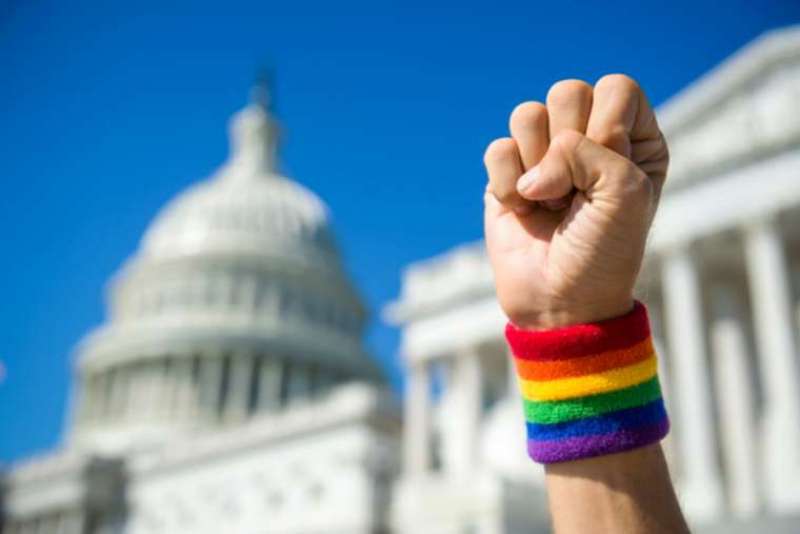The House of Representatives passed the controversial Equality Act on Friday, amid heated opposition from those who argue it would pose serious threats to critical constitutional freedoms.
“This bill undermines human dignity by threatening the fundamental freedoms of speech, religion, and conscience that the First Amendment guarantees for every citizen,” said Kristen Waggoner, senior vice president of the U.S. legal division for Alliance Defending Freedom. “Americans deserve better than the profound inequality that this intolerant, deceptively titled legislation offers.”
In a May 17 statement, Waggoner said the legislation would harm women.
“It undermines women’s equality by denying female athletes fair competition in sports, depriving women of business opportunities designed for them, and forcing them to share private, intimate spaces with men who identify as female,” she said.
Waggoner added that the legislation would force Americans to participate in events and message that go against their deepest convictions.
“Many activists want to con Americans into believing that disagreement on important matters such as marriage and human sexuality is a form of discrimination that requires the government to enforce one view over another, but that is obviously wrong,” she said.
The House approved the bill by a 236-173 vote. Eight Republicans voted in favor of the bill. Seven Democrats refrained from voting for or against.
The legislation would add anti-discrimination protections for sexual orientation and gender identity to existing protections for race, color, national origin, sex, disability and religion.
It would apply not just to employment, but other areas like housing, jury duty, credit, and education, as well as at retail stores, emergency shelters, banks, transit and pharmacies, among others. It would also specify facility access for self-identified transgender persons, such as access to male and female bathrooms.
Critics have argued that the bill’s concepts of sexual orientation and gender identity are too broad and would penalize the appropriate recognition of difference between the sexes or differences between married heterosexual couples and other couples.
Representatives of the U.S. Conference of Catholic Bishops had opposed the measure in a March 20 letter. They said that while they support efforts to ensure that all people are treated with dignity and respect, the legislation would fail to advance those goals and would instead harm society.
“The Act’s definitions alone would remove women and girls from protected legal existence,” they said. “Furthermore, the Act also fails to recognize the difference between the person – who has dignity and is entitled to recognition of it – and the actions of a person, which have ethical and social ramifications. Conflating the two will introduce a plethora of further legal complications.”
The bishops also warned that the Equality Act would harm free speech, conscience, and exercise of religion. It would require that homeless shelters place biological men with vulnerable women and adoption agencies place children with same-sex couples, even if this violates their beliefs and the birth mother’s wishes. It could threaten professionals in the wedding industry who will serve all customers but cannot express messages to which they object. And it would require health professionals to provide “gender transition” treatments and surgeries in violation of their medical and ethical judgments, they said.
Furthermore, the Equality Act would exempt itself from the Religious Freedom Restoration Act, a move that the bishops noted is “unprecedented.”
The Equality Act now moves to the GOP-led Senate. Supporters of the bill will need to pick up more than a dozen Republican votes to advance the legislation. President Donald Trump has said that he opposed the measure, but has not indicated whether he would veto it if it came to his desk.

